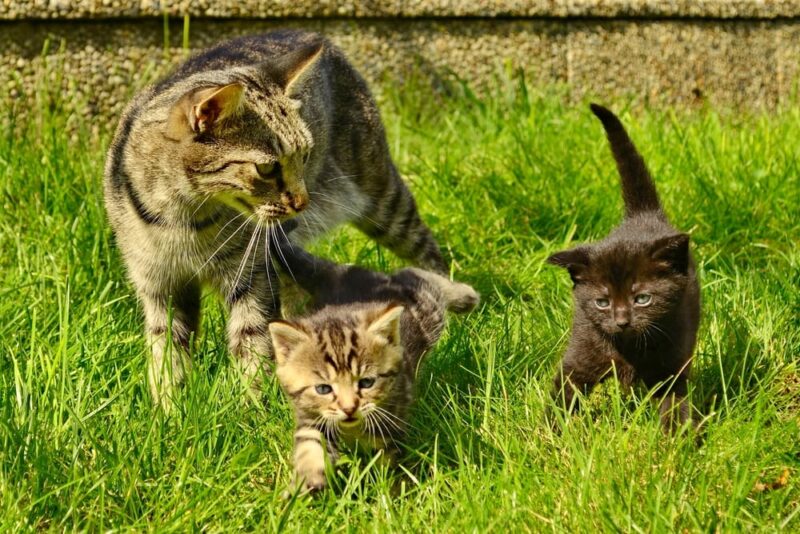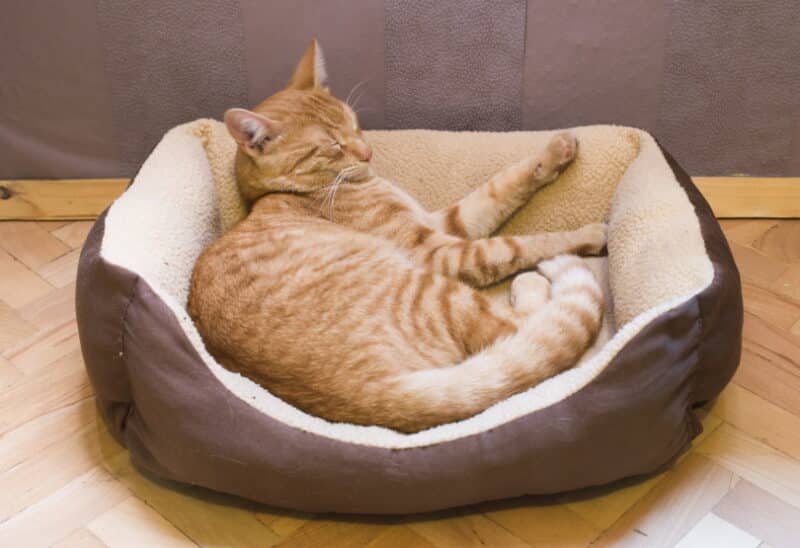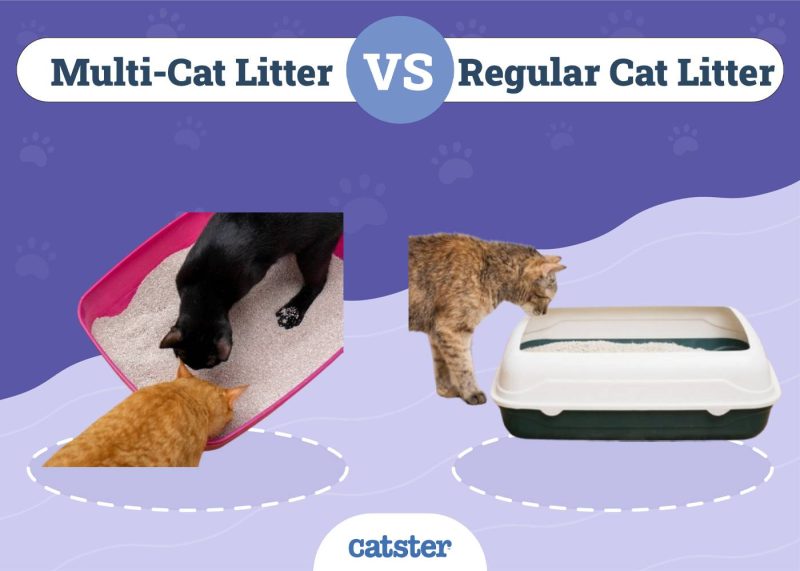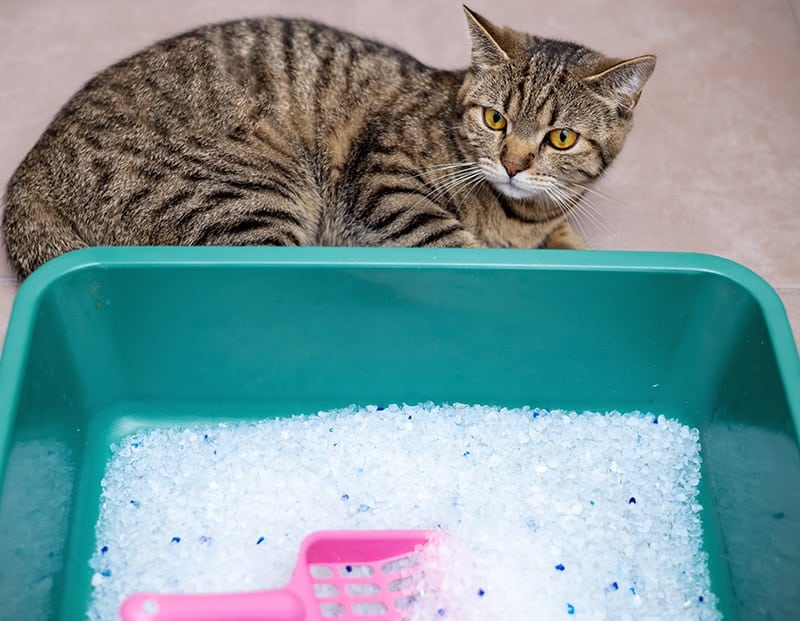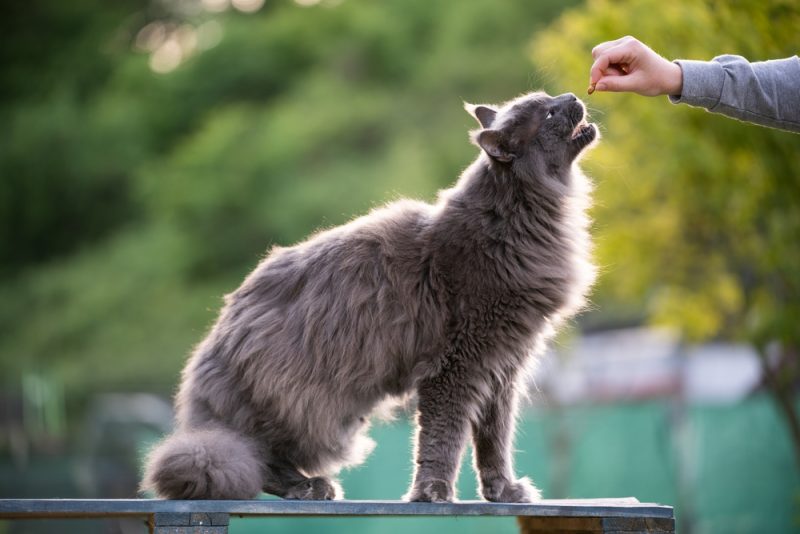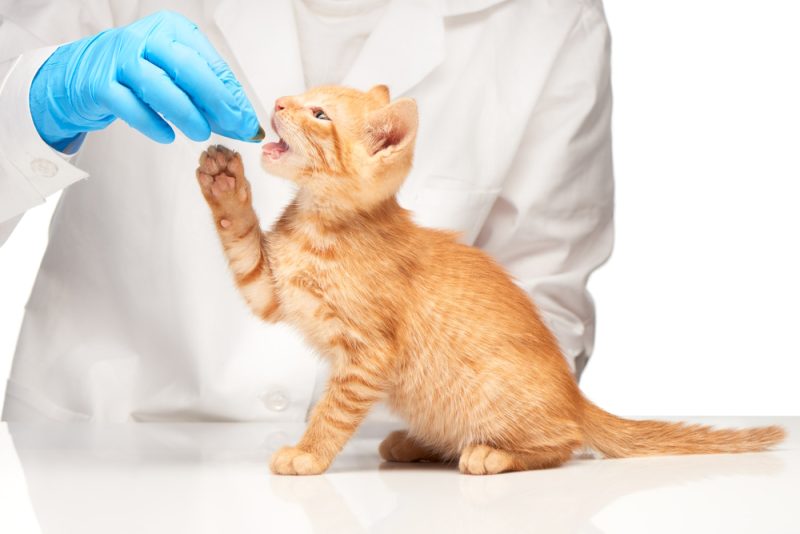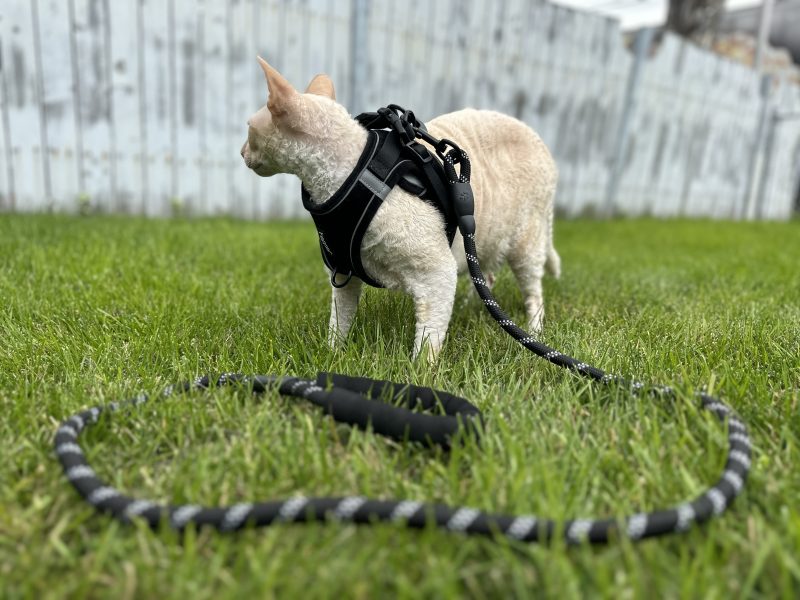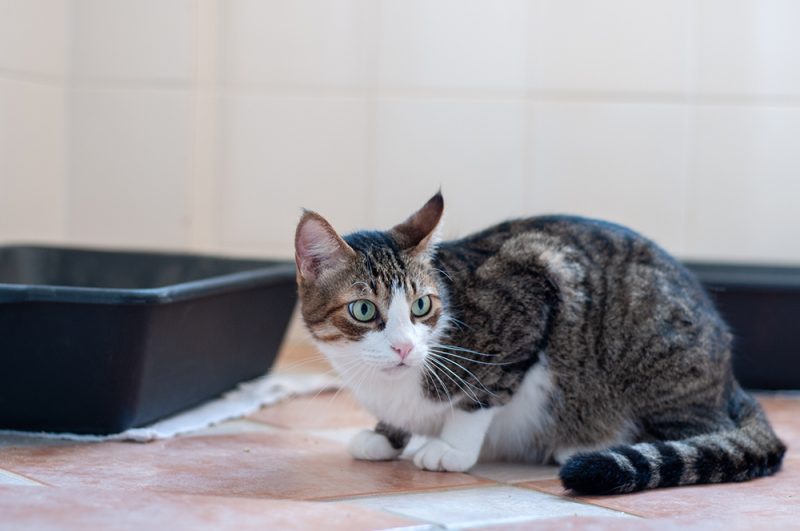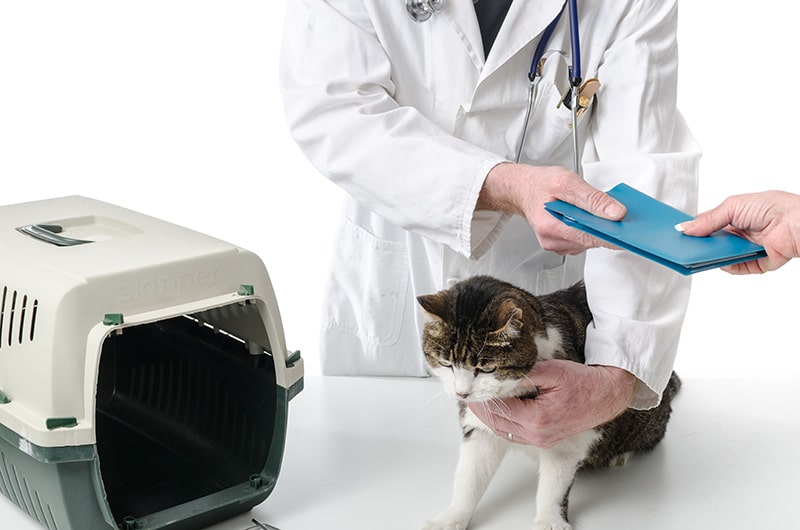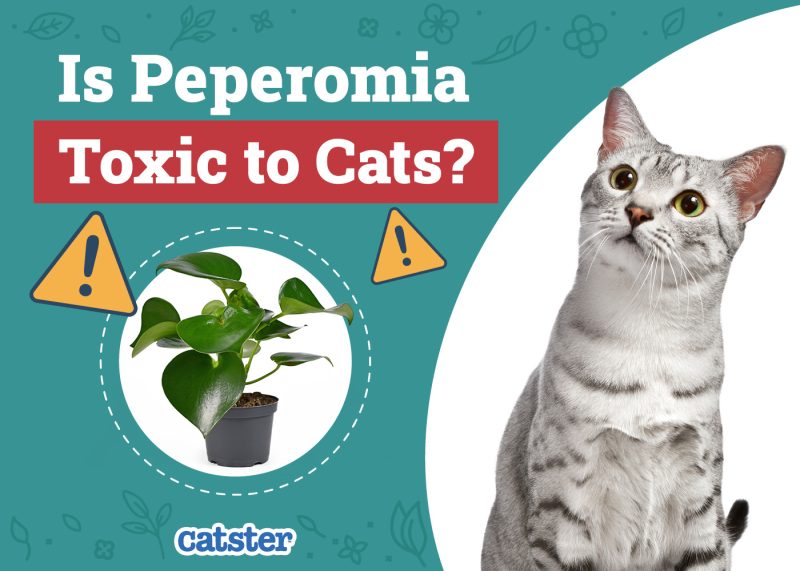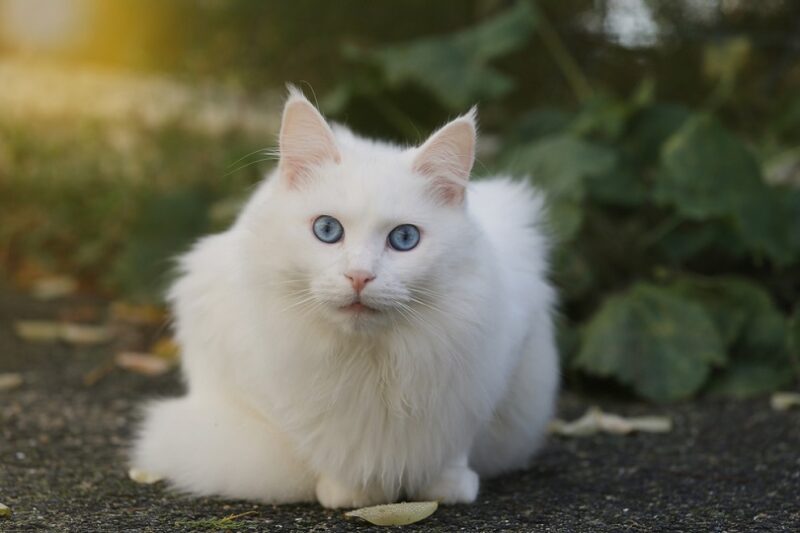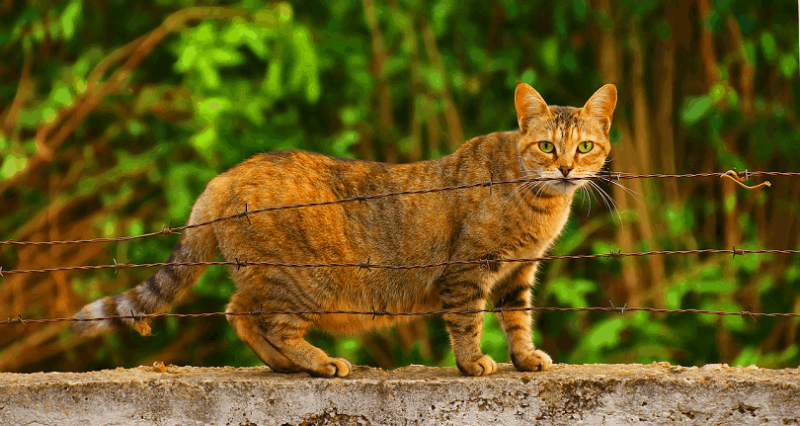Disciplining and correcting kittens is part of a mother cat’s job. She has to teach her kittens how to behave appropriately and interact with their littermates. This is important for them to learn while they’re young so they grow up to behave well with people and other animals.
In this article, we look at the ways that a mother cat disciplines her kittens and what she accomplishes by doing so.
Discipline or Correction?
Mother cats show their kittens the proper ways to behave by stopping them in the moment and showing them what to do instead. They correct their kittens rather than discipline them. They work to stop the undesired behavior and show the kittens the desired behavior rather than punish kittens for doing something wrong.
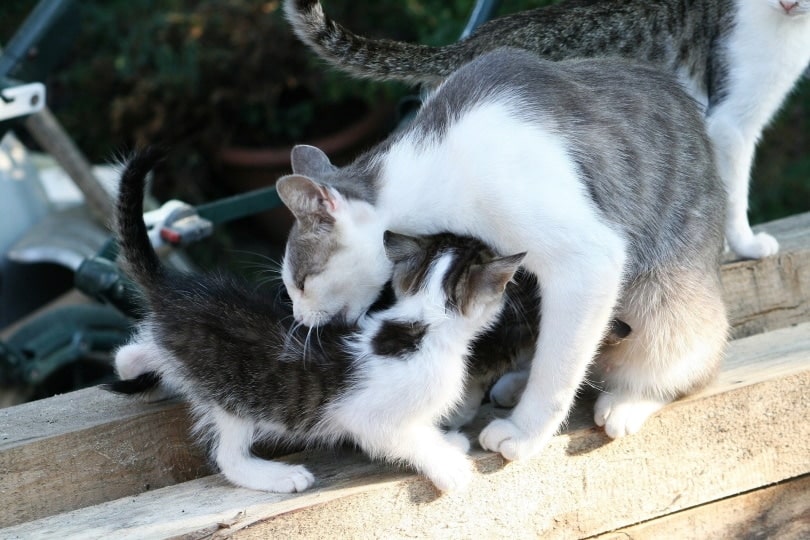
Vocal Cues
If kittens are doing something that their mother doesn’t approve of, she may hiss, growl, or let out a curt meow to stop them. Humans usually view hissing or growling as a sign of aggression. But she’s not being aggressive or mean to her kittens. She’s using vocal cues to communicate with the kittens and let them know that she doesn’t like what’s happening.
Distancing
Usually, the first form of discipline that a mother cat uses on her unruly kittens is simply to walk away. Kittens crave attention from their mother, and denying them is a powerful way to let them know that they should stop what they are doing.
If kittens try to nurse on a mother cat once they’re weaned, she will get up and walk away to show them that they should stick to cat food and stop nursing. It may take several times for the kittens to understand that nursing is over. They’ll eventually stop trying to nurse and start eating solid food from that point on.
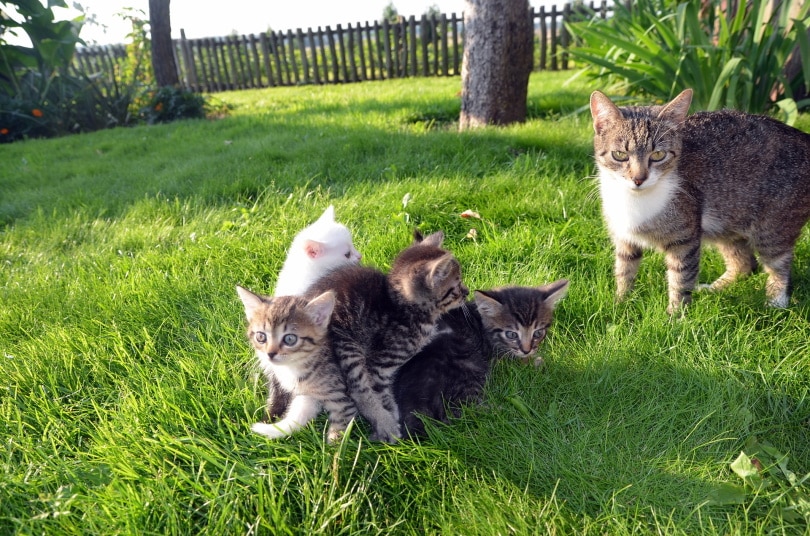
Biting
Another way that mother cats let their kittens know that they need to stop doing what they’re doing and behave is to bite their necks. This can seem and even look aggressive, but it’s not anything out of the ordinary for cats.
Biting is usually used as a last resort if the kitten doesn’t get the hint once the mother walks away or uses a vocal cue to tell them to stop. It usually means that, at this point, the mother cat is annoyed. Since adult cats know how to control their bite force, this bite isn’t painful, but it is effective. It sends a clear message that the kitten should stop performing this behavior.
Mother cats will also bite their kittens’ necks to hold them still for grooming. This teaches the kittens that they can’t play until bath time is over.
Littermates
Kittens learn how to behave from their mothers, but they also learn from their littermates. Their siblings help them learn how to socialize and interact with other cats. This is most important for bite inhibition. Cats don’t know what their bite feels like until another cat bites them. Kittens learn over time, both by biting and being bitten, that they must control their bite force or else play time ends. If a kitten doesn’t grow up with littermates or a mother to teach them bite inhibition, they may have behavioral problems because they weren’t corrected or properly socialized.
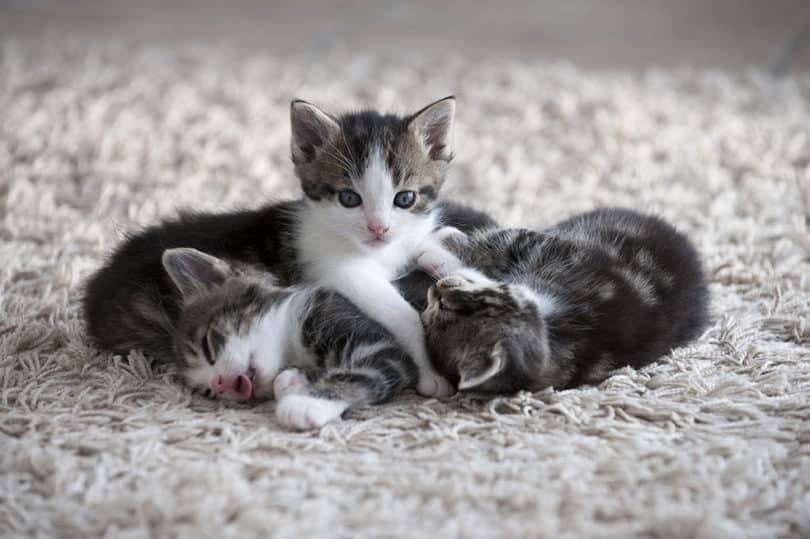
Disciplining Your Kitten
Humans can’t raise a kitten like a mother cat can, but in some cases, we have no choice. Orphaned kittens need care and protection to survive. If you have a single kitten that wasn’t raised with other cats, there are a few things that you can do to help them learn right from wrong.
- Walk away as a mother cat would. If your kitten is misbehaving or biting too hard, remove yourself from their presence and ignore them completely. Ending the play session abruptly lets the kitten know that their actions won’t be allowed.
- Redirect your kitten to an acceptable behavior. Use toys to engage them instead of your hand if they’re biting too hard. If they’re scratching the couch, move them immediately to their scratching post. If they pee outside of the litter box, move them to the litter box right away. Redirecting your kitten in the middle of the action is the best way to teach them the right thing to do.
- Use vocal cues. You can say “no” loudly and directly like a mother cat would meow or hiss. You can also hiss, growl, or make a high-pitched meow and then walk away from the kitten. This shows them that your attention is only given to them if they are behaving properly.
- When your kitten is behaving appropriately, always praise and reward them so they know that they’re doing a good job.
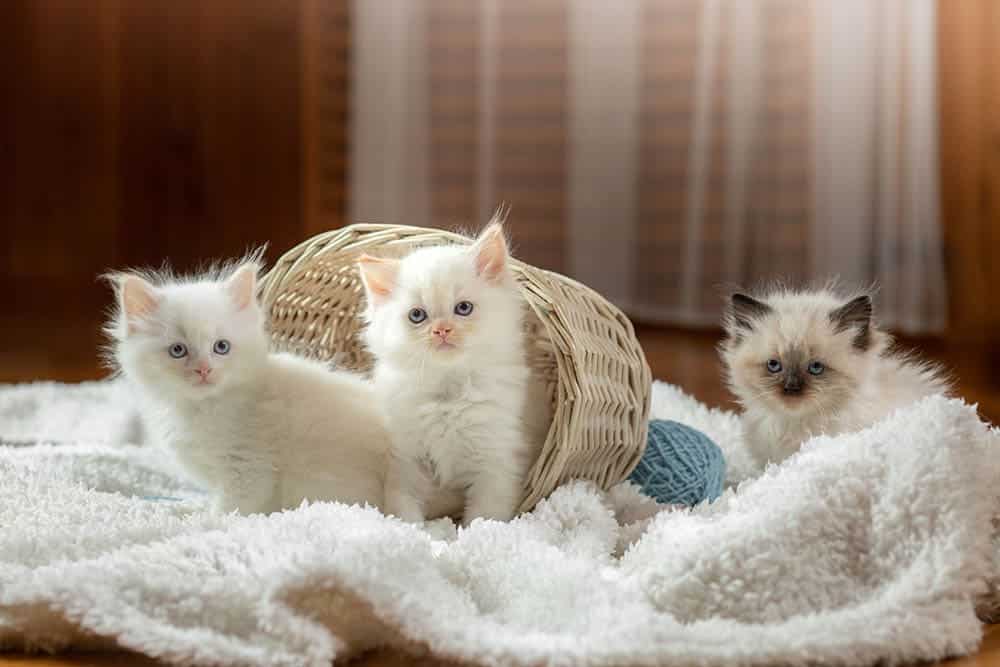
Conclusion
Mother cats use a combination of distancing, vocal cues, and biting to redirect their kittens and show them how to behave. The timing is important because it stops the kitten in the middle of the undesirable action and directs them to something more appropriate. It may seem like she’s being mean to her kittens, but she’s just showing them how to behave properly so they grow up to be social, loving, and fun members of a household. You can try to use a few of these methods yourself on an orphaned or young, single kitten to avoid any future behavioral problems.
See Also:
- Ways to Discipline Your Cat: 5 Proven & Effective Methods (Vet-Verififed)
- How Do Cats Carry Their Kittens? & Why It Doesn’t Hurt Them (Vet-Verified Info)
Featured Image Credit: Petrik Ondrej, Shutterstock
